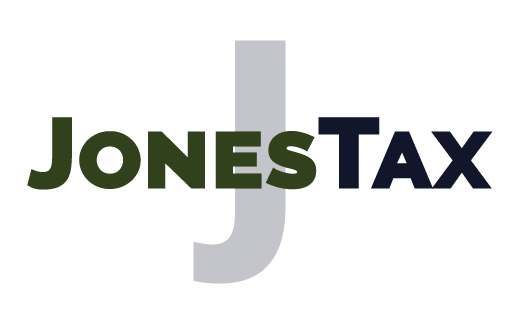The Coronavirus has changed childcare plans and created childcare related issues for many families. Most schools were closed in March and remained closed for the rest of the 2019-2020 school year. It is still unclear what the 2020-2021 school year will look like as policy makers continue to weigh the risks of in-person instruction.
The shutdown left many parents with different childcare expenses than expected. Families with school aged children may have needed extra care when schools closed. For others, daycare centers may have closed or were reserved for only kids of essential workers. Many have needed to find alternatives to summer camps that were cancelled. If schools open in the fall for distance learning or some sort of hybrid model, childcare costs will continue to change and expenses will increase for many parents who will now need to find care for their children during regular school hours.
New rules and strategies to dependent care flexible spending accounts as well as the Child and Dependent Care Credit (CDCC) could help you if your childcare needs unexpectedly changed due to the Coronavirus this year.
Dependent Care FSA
Employer offered dependent care flex spending accounts (FSA) typically offer the biggest tax breaks to working parents. They allow up to $5,000 pre-tax to be set aside each year to pay for childcare costs for children 13 years of age and younger while you and your spouse work or look for work. The funds can be used for day care, nannies, preschool, before or after school care and even summer day camps.
Typically, the open-enrollment period for these is in the fall and at that time parents must decide how much to set aside from their paychecks for the next calendar year. Contributions are free from both federal and state income taxes as well as Social Security taxes. Most companies require the money be used by December 31 or you lose it. Some companies do, however, offer a grace period.
CARES Act and Dependent Care FSAs
The Coronavirus Aid, Relief, and Economic Security (CARES) Act allows employers that previously offered a grace period to extend that grace period until Dec. 31, 2020. It has also allowed employers to add a special mid-year open enrollment period. Typically, one would need to experience a certain life changing event, such as a marriage, divorce, death, or birth, in order to make changes mid-year. The CARES Act makes it possible to start, stop, increase, or decrease your contributions for other reasons.
It is important to note that these changes are not required by employers. However, since the Coronavirus has so heavily affected the needs and access to childcare for many working parents, many will end up with more or less expenses than they could have possibly anticipated at the end of last year. The pressure is certainly on employers to make these changes. If you are interested in changing your elections, you should contact your employer’s benefits office for more information.
The Child and Dependent Care Credit
If you have children under the age of 13 but were not expecting to pay for childcare this year, and didn’t contribute to a dependent care FSA, you may be eligible for the Child and Dependent Care Credit. This is another tax benefit to help families with young children offset the costs of childcare. To be eligible for the benefit you must have positive annual earnings and be working or looking for work. However, the federal CDCC is nonrefundable, so only families who owe taxes after all other credits and deductions will benefit.
This credit is worth between 20% and 35% of up to $3,000 in childcare expenses, including day care, nannies, preschool, before or after school care and summer day camp, for one eligible child, or up to $6,000 in expenses for two or more eligible children. The lower your income, the larger the credit.
To claim the credit you must file Form 2441 with your income-tax return. You’ll need to provide the care provider’s name and Social Security or tax ID number. It’s a good idea to keep receipts or canceled checks with your tax files.
How to Benefit from Both
Although you aren’t allowed to double dip and claim the childcare tax credit for the same expenses you use your tax-free money from your dependent care FSA to pay for, there may be a way to benefit from both tax breaks.
FSA accounts through work are usually the best money saving option because you won’t pay federal or state income taxes or Social Security taxes. However, if you spend more on childcare than you contribute to your FSA, you may be eligible claim both.
Here’s how. The dependent care FSA can be used for up to $5,000 in childcare expenses. But if you have two or more kids under 13, the childcare credit allows for up to $6,000 in childcare expenses. So you can’t claim the credit for the $5,000 you pay with tax-free money from your dependent care FSA, but you can take the childcare credit for the extra $1,000 in expenses if you have two or more children under 13. This would reduce your tax liability from $350 to $200, depending on your income.
More Changes Will Come
We’ve all had to adjust our budgets, routines and attitudes as the coronavirus continues to disrupt our daily lives. The changes working parents have faced and are continuing to face, as we wait to see what the 2020-2021 school year will look like, have been particularly challenging to say the least. It is likely that more changes will come to offset the cost of childcare for families who weren’t expecting to need it, along with the possibility of increasing rates due to shortages. During times like this, it can be extremely beneficial to consult with a tax advisor or financial planner.
Jones Tax is here to help. We can help you figure out exactly how to budget for these changes and what benefits will be best for your situation. If you need any assistance filing your taxes, planning for next year’s taxes, or help figuring out what benefits you’ll be eligible for, give us a call at (320) 327-8409 today to talk Tyler Jones or send us a question online for a no-obligation consultation.
Information contained in this blog is not to be taken as legal, financial, accounting or tax advice.

